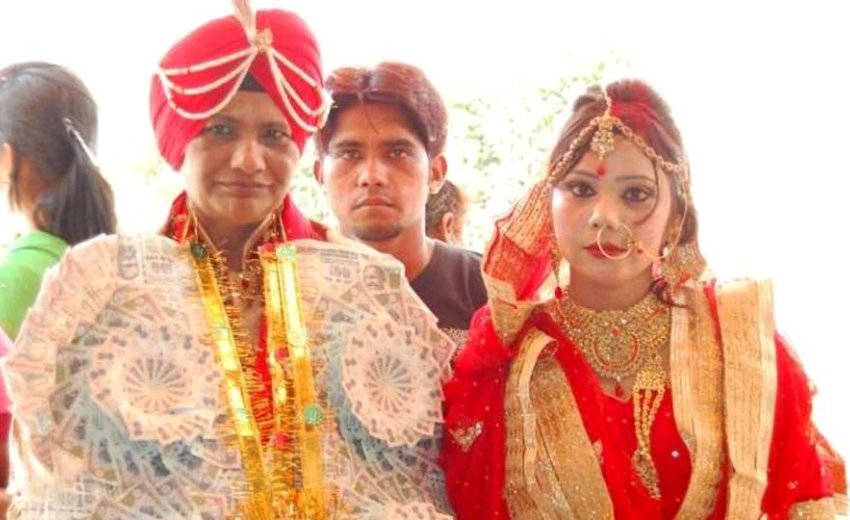The Supreme Court, in a landmark judgment on September 6, 2018, unanimously struck down part of the draconian Article 377 of the Indian Penal Code (IPC) which criminalized gay sex, saying that it violated the constitutional right to equality and dignity. The judgment was widely welcomed by most sections of society. The law’s demise was a cheerful conclusion to a protracted legal battle for LGBTQ rights in India—but the fight for LGBTQ societal acceptance is far from over.
Looking at the timeline of the battle against section 377 in India, which began more than three decades ago, the first same-sex marriage was witnessed in Punjab on April 22, 2017. While many in India were still trying to break the taboo around homosexuality, this bold move by the official inspired others.
Manjit Kaur, a state government warden, had a religious ceremony with another woman. Though the 'wedding' did not have any legal sanction, its symbolism was praised by actors like Swara Bhaskar and filmmaker Onir.
The same-sex 'wedding' of Manjit Kaur, a police officer for the Punjab state government, with her 27-year-old girlfriend is perhaps the first of its kind which got social acceptance in the country. The video and pictures of the ceremony on April 22 went viral, and people applauded the families, who are seen enjoying the wedding function with great joy.
Several positive messages were sent not only from people who belong to the LGBTQ (lesbian, gay, bisexual, transgender, and queer) community but also from celebrities, who hailed the two for taking the step despite Section 377, which refers to a sexual relationship that is "against the order of nature" in the Indian Penal Code (IPC).
To be precise
Section 377 of IPC came into force in 1862, and it defines unnatural offenses: “Whoever voluntarily has carnal intercourse against the order of nature with any man, woman or animal, shall be punished with imprisonment for life, or with imprisonment of either description for a term which may extend to 10 years, and shall also be liable to fine.”
An opinion on same-sex marriage by Mohnish Malhotra,
Mohnish Malhotra, a gay rights activist and organizer of the Delhi Queer Pride Parade, says, "The gay community is being liberated from the fear of Section 377." In today's society, people are making decisions based on what they deem fit for themselves. A small event like this is a testament to the fact that if you want to change the attitude of people regarding the subject, it will not happen through big events, but through small actions."
Laxmi Narayan Tripathi's viewpoint
The transgender activist Laxmi Narayan Tripathi wrote a book on her experiences as a transgender titled I, Eunuch: Me Hijra, Me Laxmi. She supports the reported wedding, saying, "Love is between two people. Love cannot be limited or restricted. "It's a matter of personal choice.
Bollywood celebrities speak
An earlier tweet by Swara Bhaskar criticized Article 377. "I think it's a great step," she says. Our penal code should remove Section 377 of the IPC, a shameful colonial and Victorian remnant… I haven't heard about this wedding story, but if true, that's fantastic. As far as sexuality is concerned, it is a personal choice, so live and let live."
Onir is an openly gay director who has made films like Chauranga and Bas Ek Pal. The [Punjab] couple deserves our support, he says. Is there anything wrong with people of the same sex getting married? The two of them love each other and want to spend their lives together. The decision is theirs and a personal one. It should be welcomed with open arms."
A video showing a same-sex couple making love features actor Anushka Manchanda. According to her, love has no gender restrictions. When adults want to be together and they don't harm anyone, what's the problem? A lot of people do bad things to others; at least [the couple is] not doing that. There shouldn't be a problem if they are two consenting adults. This is an important step in the right direction. More love is needed."
India may have decriminalized homosexuality, but it is still a long way from de-stigmatizing it. The LGBTQ community should be accepted with kindness and open hearts to come closer to India’s dream of building a truly inclusive society.

